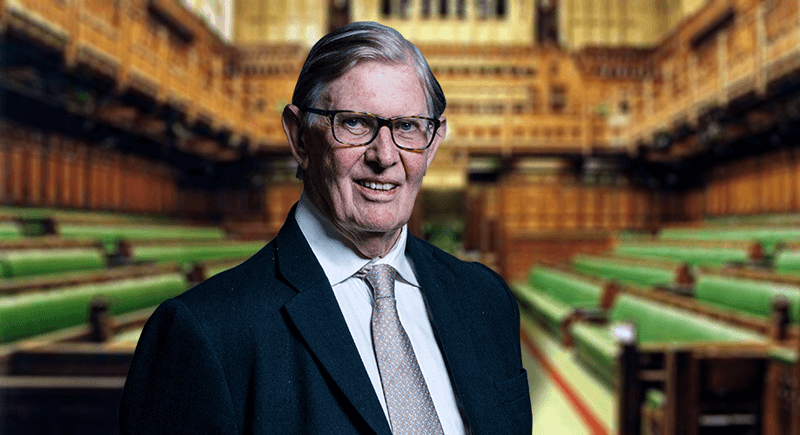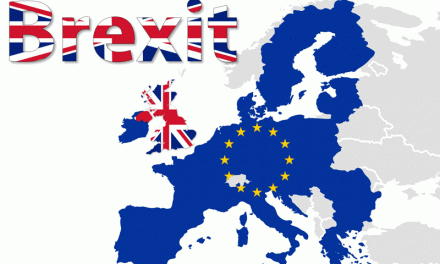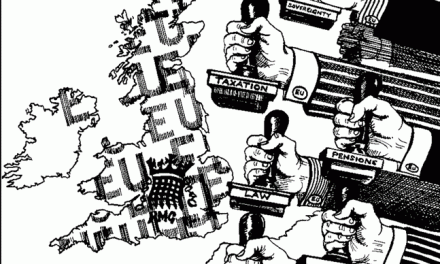The only reason why we have ever been under the laws of the European Union at all, with their accumulated and harmful effect over the last forty-eight years, is because the UK Parliament, without a referendum at the time, voluntarily agreed to enact the European Communities Act 1972 and only by a majority of eight. There is no other reason.
This 1972 Act subjected us to accepting the role of the European Court of Justice and the rule of European Community Law. Everything else flows from this including the running of our economy in a massive range of areas, including commerce, competition law and other vast swathes of activity. All this ends with the repeal of the European Communities Act 1972. The European treaties, up to and including Lisbon, have no force in law in the UK without the 1972 Act.
The supremacy of Community law over domestic law ended with our leaving the European Union under the express wording of the Withdrawal Agreement 2020 Act including Section 38. There are however those in the establishment and in Parliament who still hanker after some form of re-entry.
The Withdrawal Agreement Act 2020 was passed on second reading by 124 votes, following shortly after last December’s General Election. This constitutional outcome reflected the will of the people in the referendum authorised by Act of Parliament. The General Election gave the Conservative Party, which endorsed the Referendum, a majority of 81. Section 38 clearly and expressly ensures that the sovereignty both of Parliament and of the electorate through its representatives in Parliament is free from EU subjugation. The UK courts have to accept this.
The transition period under the Withdrawal Agreement does assert that until 31st December this year the UK will continue to operate as if it were still under EU jurisdiction. This will not be extended beyond 31st December 2020. We left the EU on 31st January 2020. Section 38 enables Parliament to override the Withdrawal Agreement by a later enactment without qualification. Section 38 even includes the words ‘nothing in this Act derogates from the sovereignty of the Parliament of the United Kingdom’.
This is no less a constitutional revolution than in 1688. It gives back to the British people their self-government, freedom and their democracy accumulated over the last 400 years but temporarily interrupted in 1972 by the European Communities Act until the Withdrawal Agreement Act 2020.
To get some sense of what a massive watershed this is it is worth looking at what we gave up voluntarily and by deception in the absorption of the United Kingdom into the EU by that fateful Act of Parliament in 1972.
Anyone looking at the archives in Kew, which are available for public inspection (never yet published) but marked ‘Confidential’, will see the extraordinary lengths to which, at the direction of Government Ministers, the whole issue of sovereignty was camouflaged and slipped through under the radar by the Heath Government at the time. For example, in the preparation of the White Paper for July 1971 the then legal advisors to the Government made statements such as “we do not want to give future community partners the idea that we are frightened to commit ourselves to giving up our sovereignty. We need to reassure people in Parliament and in the country who get emotional about loss of sovereignty.” Sovereignty of course is not a matter about emotions; it is about the practical application of law-making and is an essentially practical question about the rule of law, government and the running of our economy with fundamental consequences. Yet there are many examples in these confidential exchanges between senior legal and diplomatic advisors to Ministers suggesting that sovereignty was really all about “emotion”. These included their use of words stating that those arguing against a loss of sovereignty were engaged in “a masquerade”. There is correspondence between these advisors and Geoffrey Rippon and the Secretary of State in the preparation of this White Paper, including quoting the Law Officers (of which Sir Geoffrey Howe was Solicitor General) and Sir Con O’Neill (the most senior civil servant involved in this process) which shows how that White Paper was manipulated and engineered. He even made it clear that he did not want a European Select Committee.
The advisors say for example that “by far the greater part of our domestic law would be unaffected” and they say that “our courts would in certain cases need to refer matters to the European Court but otherwise the working of our courts would be unaffected.” They conveniently omit to point to the certain extension of law-making powers known as “Competences” into critical areas of government. These were anticipated and encouraged by the officials and Ministers and were matters they clearly regarded as thoroughly desirable and inevitable as time progressed.
Indeed when the White Paper came out in July 1971 it explicitly stated at paragraph 29 that “on a question where a government considers that vital national interest are involved, it is established that the decision should be unanimous. Like any other treaty, the treaty of Rome commits its signatories to support agreed aims but the commitment represents the voluntary undertaking of a Sovereign State to observe policies which it has helped to form. There is no question of any erosion of essential national sovereignty, what is proposed is a sharing and an enlargement of individual sovereignties in the general interest.” In Article 30 it says that “all the countries concerned recognise that an attempt to impose a majority view in a case where one or more members considered their vital national interest to be at stake would imperil the very fabric of the community.”
However, this was not just disingenuous bureaucratic language, it was about a deliberate policy whereby the UK would be engineered and led into voluntary, induced subjugation of its Constitution and law-making through its MPs in Parliament on behalf of the British people with damaging consequences into the indefinite future. This 1972 Act of Parliament based upon this deception, only managed to get through Parliament by a tiny majority. The confidential paper to Ministers went on to say: “it will be in British interests after entry that the Community should develop towards an effectively harmonized economic, fiscal and monetary system together with a fairly closely coordinated foreign and defence policy… it could only take place if there were a strengthening of the institutions of the Community with consequential weakening of national institutions including Parliament.” “To meet the public anxieties, masquerading as concern for ‘loss of sovereignty’, it will be important to contrast community gains with the inevitable loss of sovereignty.”
The documents continue in this vein and leave the reader in no doubt that there was every intention to massage the implications of sovereignty and to carry out the objectives by disguise and deception.
We should remember the sheer range of all the powers that were accumulated through this European Communities Act 1972, reaching into every nook and cranny of our political and domestic life, and over commercial and economic activity. The law officers are even quoted as stating that what was being pushed through was amounting in effect to a new body of what they described as ‘federal’ statute law.
This was all part of a concerted agreement across the European establishment and elite driven by the European Commission and by Germany and encouraged by the United States at the time, which would undermine UK “national power”. These Government advisors sneeringly referred to this power as largely “a mere illusion”.
Indeed the first president of the European Commission was the Euro-fanatical German Walter Hallstein. He was subsequently followed as German Vice Chancellor under Helmut Kohl by Hans Dieter Genscher who became Foreign Minister of Germany for eighteen years, retiring in 1992. Genscher was, with Helmut Kohl, the architect of Germany’s policy “at the heart of Europe”.1 Boris Johnson’s book “Lend me your Ears” includes a hilarious but extremely revealing account of how John Major as Prime Minister was taken in by Kohl over this policy.
The extent of this Europe-wide policy cannot be exaggerated. That is why it so important that under the Withdrawal Agreement Act 2020, through the Referendum and now the General Election we reversed all this so that we regain our freedom and our democracy, subject to ironing out some significant matters in the negotiations such as over Northern Ireland.
These archives complement the parallel determination of other Member States to achieve a continuing process of European Integration with which the British Government was collaborating. It is also important to note that this was built on the determined policies of the likes of Foster Dulles and his brother Allen Dulles and their dubious legal colleagues who in turn were engaged in following through long standing policies generated in Germany over a long period. This was recently exposed in The Critic in June 2020 by Adam Le Bor, which elaborated the arguments presented in my pamphlets and my book “Against a Federal Europe” in 1990 and in “From Brussels with Love”2 in June 2016, before the Referendum.
The disgraceful White Paper of 1971 in itself, being the basis for the European Communities Act 1972, was a profound reason why our battle against the EU had to be fought as well as for example the infamous document in 1947 ‘Design for Europe’. This states that “No government dependent upon a democratic vote could possibly agree in advance to the sacrifice which any adequate plan must involve. The people must be led slowly and unconsciously into the abandonment of their traditional economic defences, not asked, in advance of having received any of the benefits which will accrue to them from the plan, to make changes of which they may not at first recognise the advantages to themselves as well as to the rest of the world.” This was no less than a confidence trick from the outset.
The battle over the Maastricht Treaty which Genscher described in 1992 as “the Treaty establishing political union” was the original battle to regain our practical sovereignty, self-government and our democratic freedom which has continued since the Maastricht Rebellion in the early 1990s. This has now not only been vindicated but has been one of the greatest struggles in peacetime in our entire history. It culminated in Section 38 of the 2020 Act, which constitutionally enables the UK through its express statutory wording to unilaterally break free from EU subjugation and ECJ jurisdiction.
It was significant that the Prime Minister insisted on 16th June after his Conference with European Leaders that he would have no truck with ECJ Jurisdiction, EU state aid laws, nor EU fisheries policy. His statement was entirely consistent with the White Paper published in February which made it clear that “whatever happens, the Government will not negotiate any arrangements in which the UK does not have control of its own laws and political life. That means that we will not agree to any obligations for our laws to be aligned with the EU’s, or for the EU’s institutions, including the Court of Justice, to have any jurisdiction in the UK”. Apart from the undemocratic institutional Governance of the European Union which provides for laws to be made in the Council of Ministers by Qualified Majority vote and/or consensus, behind closed doors and without even so much as a transcript, unlike Hansard, there has never been a level playing field. In particular, the authorization of massive state subsidies such as recently for Corona Virus has emphatically favoured other countries in particular Germany, as has been the case for Coal and Steel and energy. The new German Presidency is now pressing hard for fiscal union and for new EU revenues including a Financial Transaction Tax.
Germany took over the presidency of the Council of the European Union on 1st July – we have left in the nick of time.
Sir Bill Cash is the MP for Stone, former Shadow Attorney General/Secretary of State for Constitutional Affairs and is Chairman of the European Scrutiny Committee




